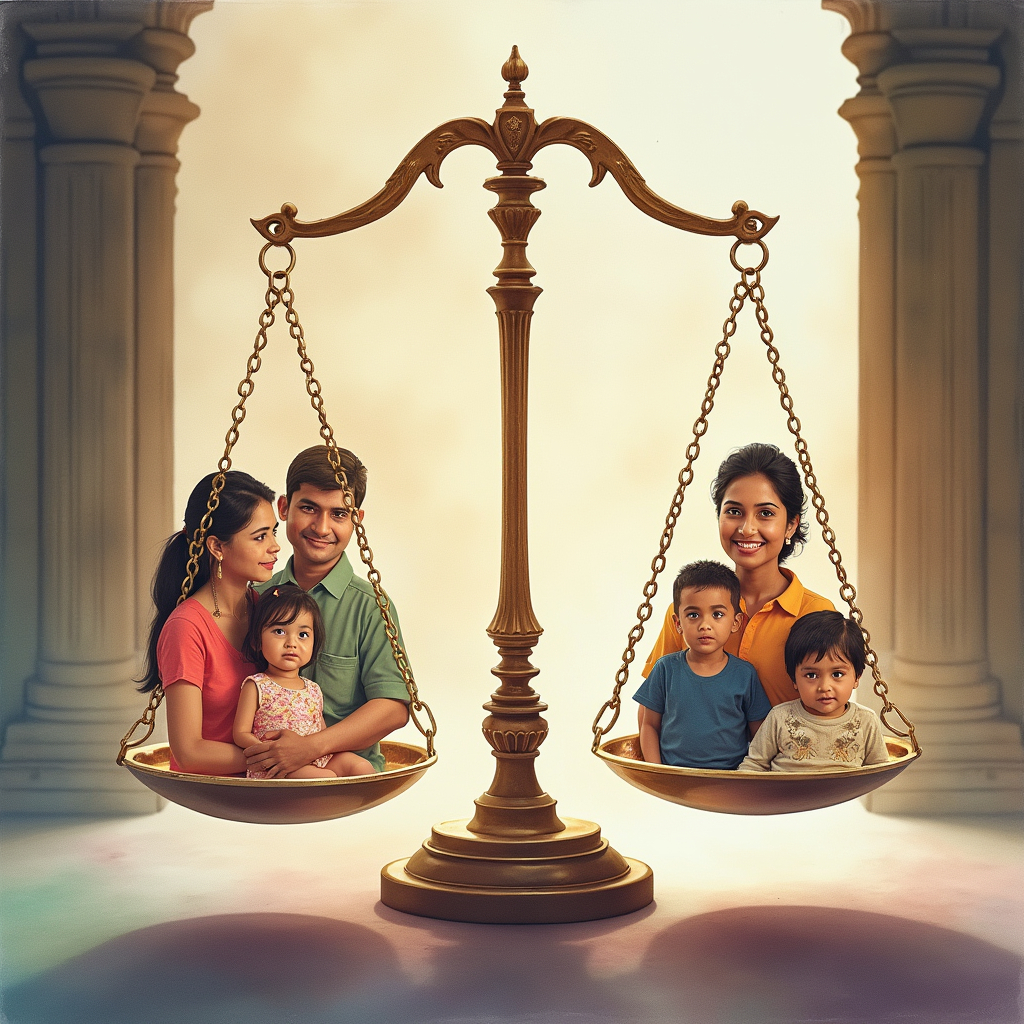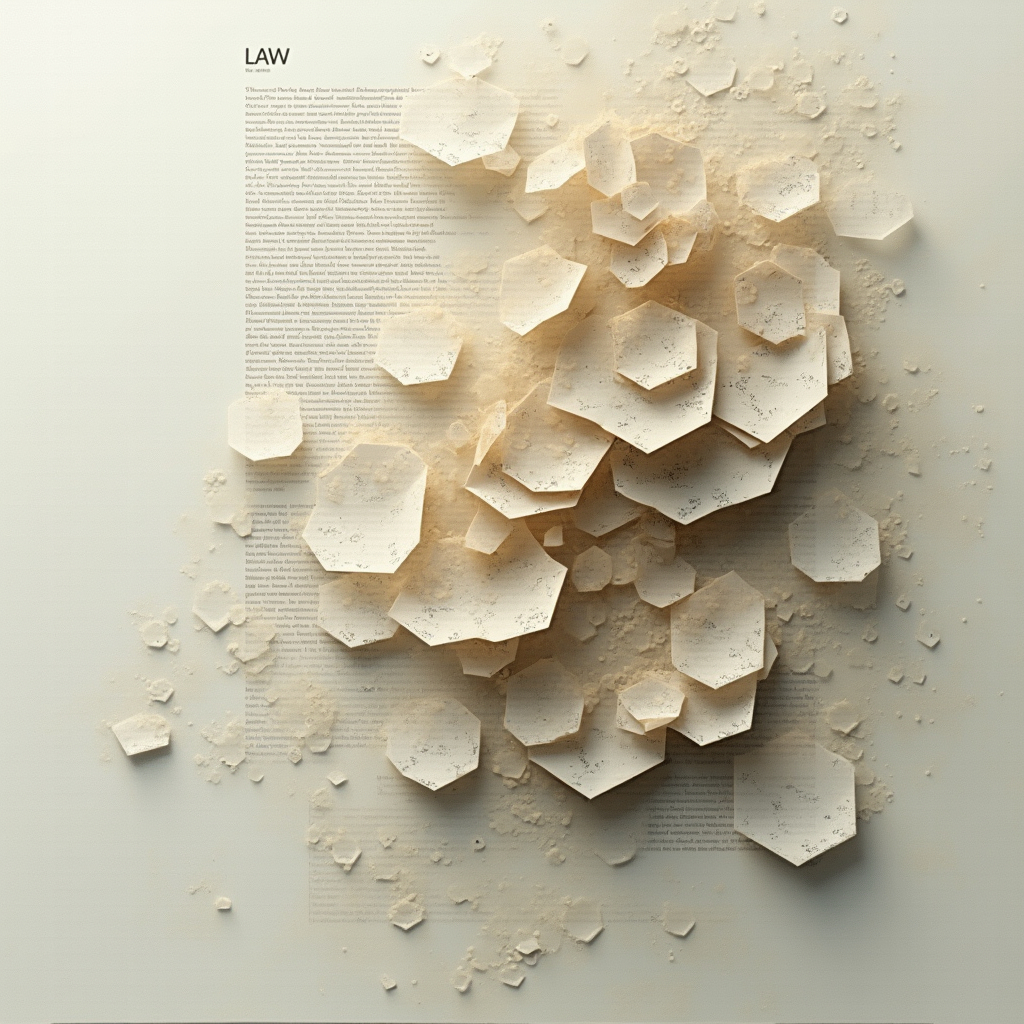This article is written by Jagdish Kaisare and further updated by Upasana Sarkar. It deals with the laws of intestate succession. It gives a detailed and comprehensive understanding about the meaning, concept, and rules of intestate succession. It also states which religion has their own personal laws governing their own intestate succession, and in the absence of personal laws, the Indian Succession Act, 1925, will be applicable.
Table of Contents
Introduction
The Indian legal system has various laws dealing with the inheritance of properties and assets of the citizens of India. Inheritance laws deal with the properties and assets of a person who dies. It lays down provisions dealing with the succession rights of assets and properties of a deceased person. There are some personal laws that deal with the inheritance rights of the Hindus and Muslims, whereas the Indian Parliament has also introduced the Indian Succession Act, 1925, which is applicable for everyone irrespective of any religion. The Indian Succession Act will be applied in the absence of a personal law of a particular religion. These Acts lay down rules and regulations regarding the distribution of properties and assets in cases of both testate succession (with a will) and intestate succession (without a will). The concept of intestate succession is unknown to most of the Indian citizens. They have grown up with the idea that the property of one’s parents passes to their children.
Most of the Indian citizens do not have the knowledge about the time and situation when the laws of intestate succession come into play. So, it is very important to understand the role of intestate succession. Laws of intestate succession are useful for identifying and prioritising heirs so that the properties of the deceased person can be distributed fairly, legally, and in an organised manner. A Probate Court, mainly, has the authority to determine the intestacy in case of a deceased person without a will.
Let us understand the concept of intestate succession at length.
Meaning and concept of intestacy in India
Intestacy is a situation where a person dies without leaving a last will and testament for the inheritance of his properties and assets. In case a person does not have any will, the deceased person’s assets and properties will be distributed among the successors in accordance with the laws of intestate succession. For distribution of the assets among the successors, mostly the personal laws of a particular religion will govern all the members of that community. Therefore, the laws of intestate succession are very important for outlining the hierarchy of beneficiaries and the proportion of assets that the beneficiaries will enjoy as the owners of those particular properties or assets.
The rules laid down in the intestate succession laws aim to make an equitable and fair distribution of assets and properties among the heirs of the deceased. However, it might not be consistent with the testator’s explicit wishes and intentions to transfer wealth in a specified ratio among family members based on their needs or to any other individual who could be a distant relative, friend, caretaker, or charity, as it prefers distributing them between the natural heirs. In the absence of a will, it is the duty of the court to determine the distribution of the deceased person’s estate, which mainly establishes a hierarchy, with spouses and other close relatives being first in line to receive the properties and assets. Hence, the meaning of intestate succession is the transfer of the estates of an owner who has died in accordance with the provisions of laws of intestate succession.
Key terms in intestate succession
There are a few important key terms that are used in the case of intestate succession. These terms are frequently used while dealing with the succession laws. So it is very important to understand their meanings. Some of the key terms are as follows:
Heir
The term ‘heir’ means a person who inherits the property of a deceased person in absence of a will or testament. In short, it means when a person acquires the property upon the death of another person. A person can inherit one dead person’s property by descent, relationship, will, or testament. The definition of ‘heir’ is mentioned in the Black’s Law Dictionary (9th Edn). According to this dictionary, heir means a person who, under the laws of intestacy, is entitled to receive an intestate descendant’s property. The Oxford English Dictionary (Indian Edn) also defines the expression “heir”. It means a person legally entitled to the property or rank of another on that person’s death.

Intestate
A person is said to have died intestate if he does not leave a will specifying the distribution of his properties or assets before dying, or the will made is deemed to be invalid or illegal. It means that the person has not written his wishes about how to distribute his properties and assets among his/her heirs.
Decedent
A person is said to be a decedent if he dies, leaving his property to be distributed. It means that the person has died without making a will that denotes who will be given how much of properties and assets.
Legal heir
A person is said to be an heir of a person when he inherits property from the decedent. A person is a legal heir or not is determined with the help of a valid and legal will or by the particular state’s intestate laws. The legal heirs are classified as follows:
- Class I: Those persons who belong to Class I heirs come first in the inheritance line, who are the wife, sons, daughters, and the mother of the deceased person.
- Class II: Those persons who belong to Class II heirs come second in the line of inheritance when none of the Class I heirs are present or alive to claim the inheritance rights. The father, brothers, and sisters are usually considered to be Class II heirs of the deceased person.
- Agnates: Agnates are said to be those persons who are the relatives of the deceased person related by their male family members.
- Cognates: Cognates are said to be those persons who are the relatives of the deceased person related by their female family members.
Succession
In common parlance, succession means inheritance. Upon the death of a person, succession follows. The Constitution of India, via Entry 5 in List III, recognizes the personal laws and deals with areas like marriage, divorce, adoption, partition, intestacy, succession, etc. Thus, either the State or the Centre is competent to legislate on areas falling within the ambit of personal laws.
The word ‘succession’, in its simple sense, means succeeding the rights of another person. It means passing the legal rights of a deceased person to another person. It can also be defined as taking the rights of a dead person as his/her successor. If a person dies without a will, his or her legal heirs receive the inheritance. Succession is a situation where a person succeeds the property of a deceased person and becomes the successor. In most cases, the Hindu Succession Act, 1956, prescribes the rules relating to succession applicable to Hindus, Sikhs, Buddhists, and Jains. It extends to the majority of the Indian citizens. Another one is the Sharia Law, which is applicable to Muslims. Then comes the Indian Succession Act, 1925, which is basically applicable to Christians and other persons not covered by the Hindu Succession Act and the Sharia Law.
Testate
The expression ‘testate’ denotes the act of having a valid will. A person, in such a case, leaves a written will to govern the disposition of his or her property after death. Such succession is known as testamentary succession.
Probate
The legal method of distribution of the estate of a deceased person is called probate. There are mainly two kinds of courts under this category:
- Probate Court: The Probate Court has jurisdiction over the estate of a deceased person. This is known as the Circuit, Superior, Common Pleas, Surrogate, or the Orphan’s Court in several states.
- Probate Estate: The probate estate means where the properties of a deceased person need to go through the probate procedure. However, all of the estate need not, nor will, go through the probate procedure.
Spouse
The expression “spouse” usually means an individual lawfully married to another individual. A person is said to be a surviving spouse when the survivor is legally married to the deceased at the time of that person’s death.
Issue
The term “issue” is used to describe a person who should inherit the estate of a deceased person in the absence of a will. Children and grandchildren are usually direct descendants of the deceased person.
Children
The meaning of the term “children” is known and clear to everyone. But there are some other definitions also that are included in it, which are as follows:

- Adopted children: Adopted children are not biologically born children of their parents but are adopted through legal means. Most of the states, including India, give the adopted children the same inheritance rights as the biological children.
- Stepchildren: Stepchildren are children of one’s husband or wife by a previous relationship. Unlike other states, in India, most of the time the stepchildren are allowed to inherit the property of their parents if they are legally adopted by them.
- Posthumous children: A posthumous child is a child that was conceived before the parent’s death but was born after their death. Like other nations, in India, posthumous children inherit the properties according to the same intestate succession laws as other natural-born children.
- Children born through artificial insemination: When the woman uses an unknown donor’s semen to become pregnant, the child born is the biological child of the woman alone, not her husband. Therefore, after the death of the husband, the child may or may not inherit property under intestate succession laws in accordance with the laws of that state.
- Children born outside marriage: Children who are born to unmarried parents need to show some proof in order to inherit the assets of their father.
- Foster children: Foster children, mostly, do not inherit the properties of the parents unless the properties are gifted to them by a will.
Siblings
The term ‘Sibling’ is used to refer to a sister or brother of a person. In law, it means a birth sibling, or legally adopted brother or sister, step-brother or step-sister. Half-siblings who are adopted by the parents are also included under the expression ‘siblings.’
Will
A will is considered to be a formal statement expressing a person’s intentions regarding the transfer of their assets and property. It may or may not explicitly state the properties or assets and may or may not expressly transfer ownership rights to family members, friends, carers, and others. Section 2(h) of the Indian Succession Act, 1925, defines the term ‘will’, which states that it is the legal declaration of the testator’s intentions regarding his property that he wishes to be carried into effect after his death.
Personal laws and their applicability in India
In India, personal laws of every religion play an important role in determining the succession rights of the people of a particular community. The Hindus, Buddhists, Jains, and Sikhs are governed by the Hindu Succession Act, 1956, and the inheritance laws of the Muslims are governed by the Muslim Personal Law. There are many other religions that do not have any personal laws for their governance. The Indian Succession Act, 1925, was enacted by the Parliament for governing the succession rights of Christians, Parsis, and individuals belonging to other religions. Therefore, we can find that each of the personal laws has different sets of rules and procedures relating to the inheritance and succession rights, including the intestate succession rights.
Intestate succession in India
According to Section 30 of the Indian Succession Act of 1925, if a person does not make a testamentary disposition for all of their property, they are said to have died intestate. As stated above, a person dying without a will or a valid will shall be governed by the personal laws that will be applicable to the deceased. If under any circumstances a will is found to be invalid, or the valid will has included some balance and left out some others, then the balance properties, that is, the remaining property, shall devolve in accordance with principles of intestate succession. Laws of intestate succession are different for Hindus, Muslims, and Christians, which are mentioned below in detail.
Kinds of succession
India is a diverse country where people of different communities live. So in such a dynamic and diverse country, succession is a very tactful issue. Therefore, different laws of succession are being implemented by the State for protection of the inheritance rights of the individuals. While studying about these succession laws, one gets to know about the different kinds of succession. The two main types of succession in India are as follows:
- Testamentary succession: It means where a person dies after making a will; or
- Intestate succession: It means where a person dies without a will.
A will is basically a declaration expressing the desires of a person with regard to his estate and provides for its transfer upon his death. A person is said to have died intestate with respect to an asset that he has not disposed of under a will, or the disposition under the will is not capable of taking effect either on account of an invalid or illegal bequest. Intestacy may either be total or partial.
In the event a person dies intestate, his/her assets are distributed as per the mandate of the Indian Succession Act. The vesting of the assets takes place under the relevant personal laws. However, intense complexities arise when there is more than one heir, given the fact that some assets are more lucrative than their counterparts.
Distribution of joint family property by intestate succession

The acquisition or distribution of property among Hindus as stated above is covered by the Hindu Succession Act, 1956. If the provisions of this Act are applied to Hindus living in West Bengal, Orissa, or Assam, then the inheritance of properties will be governed by the Dayabhaga rules. In this case, the joint family property does not go to the male heirs until their father dies. In the case of people living in other parts of India, their succession will be governed by the Mitakshara rules. The rules under Mitakshara state that the male heirs, from the time of their birth, become co-owners, or coparceners, of the joint family property.
The joint family property is controlled and managed by the eldest male member of the family, known as Karta. Before the 2005 Amendment, the female members, that is, the wife, daughters, sisters, and daughter-in-law were not allowed to inherit the properties. After the 2005 Amendment, the female members of the family were given the same status as that of male members.
The legal heirs of a coparcener receive their portion of the joint family property upon their death in the following manner:
- The deceased and their lawful heirs receive an equal share of the family property. The legal heirs of a deceased person include their spouse, children, and parents.
- The deceased family member’s portion of the property is now regarded as their self-acquired. Their property is distributed to their lawful heirs in accordance with the provisions of succession laws.
Category of intestate succession under Hindu Succession Act
The people belonging to the Hindu, Buddhist, Jain, or Sikh community, or Arya Samaj, will be governed by the Hindu Succession Act, 1956. The principles for inheriting the properties of the deceased are mentioned in various sections of the Act.
Legal heirs of Hindu male
In case of the deceased male Hindu, the distribution of property takes place among his relatives to the four categories, which include Class I, Class II, Agnates, and Cognates.
Class I heirs of a Hindu male
Class I heirs of a Hindu deceased male are his closest relatives and are entitled to inherit the properties in the first instance before are other distant relatives. The following heirs belong to the Class I category:
- Sons of the deceased
- Daughters of the deceased
- Widow of the deceased
- Mother of the deceased
- Son of pre-deceased son
- Daughter of pre-deceased son
- Son of pre-deceased daughter
- Daughter of pre-deceased daughter
- Widow of pre-deceased son
- Son of pre-deceased son of a pre-deceased son
- Daughter of pre-deceased son of a pre-deceased son
- Widow of pre-deceased son of a pre-deceased son
- Son of a pre-deceased daughter of a pre-deceased daughter
- Daughter of a deceased daughter of a pre-deceased daughter
- Daughter of a pre-deceased son of a pre-deceased daughter
- Daughter of predeceased daughter of pre-deceased son
All the above persons belong to Class I heirs and would inherit the properties of the deceased simultaneously, excluding others heirs who belong to Class II heirs.
Class II heirs of Hindu male
Class II heirs of a Hindu deceased male inherit the properties of the deceased only in the absence of Class I heirs and in such a manner that heirs specified in a particular entry share equally. If more than one heir is mentioned in a single entry, they share the property concurrently and equitably to the exclusion of those specified in later entries. The following heirs belong to the Class I category:
- Father of the deceased
- Son’s daughter’s son of the deceased
- Son’s daughter’s daughter of the deceased
- Brother of the deceased
- Sister of the deceased
- Daughter’s son’s son
- Daughter’s son’s daughter
- Daughter’s daughter’s son
- Daughter’s daughter’s daughter
- Brother’s son
- Sister’s son
- Brother’s daughter
- Sister’s daughter
- Father’s father
- Father’s mother
- Father’s widow
- Brother’s widow
- Father’s brother
- Father’s sister
- Mother’s father
- Mother’s mother
- Mother’s brother
- Mother’s sister
Agnates
In case neither the Class I heirs nor the Class II heirs are present to inherit the property of the Hindu deceased person, it will devolve on to the agnates. Agnates are said to be those persons where the two are related by blood or adoption wholly through males. Agnate relationships are limited to blood relationships and do not include relationships through marriage. Agnates also exclude widows of the intestate’s lineal descendants.
Cognates
In case neither the Class I heirs nor the Class II heirs or agnates are present to inherit the property of the Hindu deceased person, it will devolve on the cognates. Cognates are said to be those persons who are related to the intestate by blood or adoption but not wholly through males. Therefore, mother’s brother’s son and brother’s daughter’s son are considered to be the cognates, eligible for succeeding the property of the deceased.

Legal heirs of a Hindu female
The legal heirs of a Hindu deceased female who are entitled to inherit her properties are as follows:
- Sons of the deceased
- Daughters of the deceased
- Husband of the deceased
- Son of a pre-deceased son
- Daughter of a pre-deceased son
- Son of a pre-deceased daughter
- Daughter of a pre-deceased daughter
- Any heirs of the husband
- Mother and father of the deceased
- Any heirs of her father
- Any heirs of her mother
- According to the Act, any estate that a woman succeeds to from her mother or father, in the absence of any daughter or son of the deceased (including the children of any pre-deceased daughter or son), will be passed to her father’s heirs.
- According to the Act, any estate that a woman succeeds to from her husband or from her father-in-law, in the absence of any daughter or son of the deceased (including the children of any pre-deceased daughter or son), will be passed to her husband’s heirs.
Basic rules of intestate succession under the Hindu Succession Act
Hindu male dying intestate
The Hindu Succession Act lays down the following provisions for inheriting the properties of a Hindu deceased male:
- Section 8: This Section deals with the provision of devolution of properties in the absence of a valid will. It states that the assets of the deceased Hindu male will be distributed in accordance with the requirements of Chapter II, giving priority to Class I heirs first, then to Class II heirs, then to Agnates, and finally Cognates in the absence of the Class I or Class II heirs or agnates.
- Section 9: This Section deals with the order of succession for inheritance. For Class I heirs, no case of priority or preference arises as they all succeed at the same time. However, in the absence of Class I heirs, the property passes to the Class II heirs, which is mentioned in the schedule’s nine entries. In Class II heirs, those in the first entry will be preferred over those in the second entry. Similarly, those in the second entry will be preferred over those in the third entry, and so on.
- Section 10: This Section deals with the provisions relating to Class I heirs. It lays down rules regarding the division of properties in case of intestate succession among Class I heirs, which are as follows:
- Rule 1: The widow or widows of the intestate together shall receive only one share in the property.
- Rule 2: The surviving sons and daughters, along with the mother of the intestate, shall receive one share each.
- Rule 3: The surviving sons and daughters of each pre-deceased son’s widow receive an equal share from the heirs in that branch, and the sons and daughters of the pre-deceased daughter receive an equal share from the heirs in that branch.
- Section 11: This Section lays down provisions dealing with the distribution of property among the Class II heirs of the Schedule. The property of an intestate shall be divided first amongst the heirs stated in the first entry of the Class II heirs, followed by those mentioned right after the first entry.
- Section 12: This Section deals with the order of succession among Agnates and Cognates. The agnates and cognates are determined according to the rules specified, which are as follows:
- Rule 1: Between the Agnates and Cognates, the one who has less or no degrees of ascent is preferred.
- Rule 2: The heir with fewer or no degrees of descent is favoured when there are the same or no degrees of ascent.
- Rule 3: In cases where neither the heirs of Rule 1 nor the heirs of Rule 2 can be given preference one over the other, they take simultaneously. Therefore, where the heirs are equal in descent in the same line, they proceed simultaneously.
- Section 13: This Section lays down provisions dealing with the rules for computation of relationship between the intestate and his heirs belonging to the category of Agnates and Cognates. Using the intestate as the starting point, the relationship is traced from the intestate to the heir in terms of degrees of relationship. Male and female heirs are treated equally and without discrimination.
Hindu female dying intestate

Before 2005, female Hindus were not given equal rights like that of men to inherit family property. This Amendment kept the female Hindus on par with the male Hindus. She is considered the absolute owner of her property, whether she acquired it herself, inherited it, or received it as a gift, because it is considered as the Stri-Dhana of the deceased female.
- Section 14: This Section states that a female Hindu must have absolute ownership over her properties, as opposed to being a limited owner.
- Section 15: This Section deals with the general rules of succession of the female Hindus. According to Section 15(1), the rules of devolution of properties of a Hindu female dying intestate are as follows: upon the deceased woman’s sons and daughters, as well as any children of her deceased son or daughter, and her husband;
- Upon her husband’s heirs;
- Upon the father and mother of the deceased;
- Upon her father’s heirs;
- Upon her mother’s heirs.
Section 15(2) has laid down the following rules:
- According to the general succession rules, it is stated that entries (a) to (e) that have been laid down in sub-section(1). Section 15 will be applicable for all the properties acquired by a female intestate, with the exception of the properties inherited by her from her father, mother, spouse, or father-in-law.
- If a female intestate leaves a son or daughter, or a child of a predeceased son or daughter, that is, any issue, all of her property, howsoever acquired, devolves on such issue regardless of the source of acquisition of the property, and such issue takes the property simultaneously; and in case the intestate’s husband is still alive, they take it simultaneously with those issues in accordance with entry (a) as mentioned above. In such a situation, sub-section (2) of Section 15 will not be applicable by any means.
- If a female intestate whose husband is alive, but has no issues to inherit her properties, then with the exception of property inherited from her father or mother, which will revert to the father’s heirs, the husband will inherit the remaining of her properties that exists at the time of her death.
- If a female Hindu dies intestate without a valid will, the husband’s heirs will inherit any property that she had inherited from her deceased husband or father-in-law, rather than following the sub-section (1) of Section 15 that lays down provisions of the general rules of succession.
- If a female intestate dies without any issue, all her properties that she had inherited from her father or mother will return to her father’s heirs who were alive at the time of her death, rather than following the general order of succession laid down in Section 15(1).
- Section 16: This Section deals with the rules of distribution of properties among the heirs of the female Hindu intestate. It also lays down provisions specifying the order of succession. The properties will be distributed in the order as mentioned in Section 15, and the intestate’s property will be distributed among them in accordance with the succession rules, which are as follows:
- Rule 1 of this Section states that the heirs listed in one entry of sub-section (1) of Section 15 will be given preference over those mentioned in any subsequent entry, and those included in the same entry will take it simultaneously.
- Rule 2 of this Section states that if the intestate’s son or daughter died before the intestate, leaving their own children alive at the time of the intestate’s death, then they will divide the portion that the intestate son or daughter would have received if they had been living at the time of the intestate’s death among themselves.
- Rule 3 of this Section states that the heirs mentioned in clauses (b), (d), and (e) of sub-Section (1) and in sub-Section (2) of Section 15 shall receive the intestate’s property in the same order and under the same rules as if the property had been the father’s, mother’s, or husband’s, as the case may be, and such person had died intestate in respect thereof immediately after the intestate’s death.
Disqualification of heirs under this Act
With any exception as mentioned in this Act, no person shall be excluded from inheriting any property due to a sickness, flaw, or deformity, or for any other reason. Nonetheless, there are a few circumstances mentioned in this Act that prevent the heirs from receiving the properties of the intestate, which are as follows:
- Murder
- Conversion
Intestate succession under the Muslim personal law

The legal heirs of a Muslim deceased who are entitled to inherit the properties are as follows:
- Husband of the deceased (female): The marriage needs to be legal for claiming inheritance. No undocumented or secret marriage will be considered legal.
- Wives of the deceased husband (male): In case of Muslim marriages, a man can have more than one wife. All the wives who have been legally married to the deceased are entitled to inherit their husband’s property. A divorced wife is also entitled, but only till the iddat period.
- Sons of the deceased: No other sons like step sons, adopted sons, and illegitimate sons are entitled to inheritance other than the biological son.
- Daughters of the deceased: No other daughters like step daughters, adopted daughters, and illegitimate daughters are entitled to inheritance other than the biological daughters.
- Grandsons of the deceased: In this case, the son’s sons are entitled to inheritance but not the daughter’s sons.
- Granddaughters of the deceased: In this case, the son’s daughters are entitled to inheritance but not the daughter’s daughters.
- Father of the deceased: A step-father or illegitimate father is not entitled to the property of the deceased.
- Mother of the deceased: A step-mother or illegitimate mother is not entitled to the property of the deceased.
- Grandfather of the deceased: Grandfather means only the father’s father is entitled and not the mother’s father.
- Paternal grandmother of the deceased: It means the father’s mother is entitled to inheritance.
- Maternal grandmother of the deceased: It means the mother’s mother is entitled to inheritance.
- Full brothers: All those brothers who are born to the same parents are entitled to inherit the properties of the deceased.
- Full sisters: All those sisters who are born to the same parents are entitled to inherit the properties of the deceased.
- Paternal brothers: All those brothers who share the same father but a different mother.
- Paternal sisters: All those sisters who share the same father but a different mother.
- Maternal brothers: All those brothers who share the same mother but a different father.
- Maternal sisters: All those sisters who share the same mother, but a different father.
- Full Nephews: It means only the brother’s son is entitled but not the sister’s son.
- Paternal Nephews: It means only the paternal brother’s son is entitled but not the paternal brother’s daughter.
- Full brother’s son’s son
- Paternal brother’s son’s son
- Father’s full brother
- Father’s paternal brother.
- Father’s full brother’s son
- Father’s paternal brother’s son.
- Father’s full brother’s son’s son.
- Father’s paternal brother’s son’s son.
- Father’s full brother’s son’s son’s son.
- Father’s paternal brother’s son’s son’s son
Classes of legal heirs under Muslim personal law
Shias and Sunnis have different personal laws, which are not codified in any statute like the Hindu succession laws. For Sunnis who follow Hanafi Law, which is followed by the majority of Muslims in India, personal law limits legacies to a maximum of one-third of the estate after paying funeral expenses, outstanding wages of domestic servants, and debts, among other things. The heirs inherit the properties of their father. They follow the “Faraid” system, which is based on the procedure stated in the Quran. The share of each of the heirs is defined in it. It basically gives preference to the agnates over cognates. Sunni law allows inheritance of the property of the mother of illegitimate children. Shia laws follow the system of “Ithna Ashari” that differs from that of Sunni laws. In this case, the heirs receive the properties from their mother.
Under Shia laws, illegitimate children are only taken into account for an intestate succession involving their mother’s assets or properties, not their father’s. It adopts the principle of consanguinity, where a daughter or son’s daughter is a Class I heir and is considered Class I heirs. It excludes the female agnate heirs, including agnatic sisters, from inheriting. Here, the daughter is given preference over the father, as the daughter gets half of the inheritance and the rest is given to the father. Sharers are basically those heirs entitled to a certain specific share, whereas residuaries are those that acquire the remainder of the property. The remaining shares are divided among the following classes of legal heirs:
- Sharers: This class of legal heirs is entitled to a prescribed share in the deceased person’s estate.
- Residuaries: This class of legal heirs will receive share in the deceased person’s estate only if there is anything remaining after sharers get their prescribed shares.
- Distant kindred: This class of legal heirs will get the share only if there are no sharers or residuaries.

Intestate succession of the Christians under the Indian Succession Act, 1925
The legal heirs of a Christian deceased who are entitled to inherit the properties are wife, husband, or kin. According to Section 32 of the Indian Succession Act, 1925, legal heirs who can inherit the properties are as follows:
- Widow of the deceased
- Daughters of the deceased
- Sons of the deceased
- Mother of the deceased
- Father of the deceased
- Sisters of the deceased
- Brothers of the deceased
- If there is a direct blood line between a son and his father, grandfather and great-grandfather, and so on in the direct increasing blood line; or between a son and his son, grandson, great-grandson, and so on in the diminishing bloodline.
- If a person dies intestate and leaves behind solely a great-grandfather, an uncle, and a nephew, but no one with a close kin will receive equal shares under the third degree of kinship.
Consolidation of assets
In cases of intestate death, there are complexities in getting on record all the assets that the person owned. Consolidation of the assets and formulating an effective plan to protect them is a very critical step. Then, the next step is to approach the institutions and get the assets released.
Movable assets
Movable properties are defined in the General Clauses Act, 1897, under Section 3(26), which means those properties that can be easily moved from one place to another. Section 22 of the Transfer of Property Act, 1882, defines “movable property”. It includes every corporeal property, with the exception of land and things which are attached to the earth, or permanently fastened to anything that is attached to the earth. The definition of “moveable property” is also mentioned under Section 2(9) of the Registration Act, 1908. It includes various movable things like standing timber, growing crops and grass, fruit upon and juice in trees, and likewise, excluding the immovable things. Movable assets are basically property of any description except immovable property. They include assets like jewellery, cars, bank balances, and investments made with financial institutions. They follow the law of domicile of the intestate at the time of his/her death.
Process
In the case of bank balances and investments, the KYC form requires a nominee. If the name of the nominee is provided at the time of investment, the financial institutions will release the funds to the nominee mentioned in the form.
A nominee is, by nature, a trustee of the funds, who is entrusted with the responsibility to safeguard the funds till the legal heir is determined. In case there is no nominee, then the person making the claim will be required to produce a succession certificate.
Once the movable assets are consolidated, the letters of administration or succession certificate may be obtained from the competent court by a person making a claim to the assets.
Immovable assets
According to Section 3(26) of the General Clauses Act of 1897, immovable properties mean those that are attached to or permanently rooted in the earth, including land and benefits arising out of land. Section 3 of the Transfer of Property Act, 1882, defines “immovable property”. Under this definition, it does not include standing timber, growing crops or grass. The definition of “moveable property” is also mentioned under Section 2(6) of the Registration Act, 1908. It includes various immovable things like land, buildings, hereditary allowances, rights to ways, lights, ferries, fisheries, or any other benefit that arises out of land. Immovable assets are basically property in the nature of land, buildings, and likewise. Therefore, it considers lands, things connected to the earth, things embedded in the earth, things attached to what is embedded in the earth, as well as advantages arising out of land, as immovable property. They follow the law of situs, which is the place where the property belongs. In the event the title is not disputed, the heir can get the ownership changed at the relevant district authority that has jurisdiction over the property.
Process

In the first instance, the heir/heirs will have to ensure that there are no pending debts.
Then, upon confirmation of the ownership of the property, the next step is to apply for mutation of the property. Mutation essentially updates the government records. The application for mutation is made with a local authority. The sub-divisional magistrate would have jurisdiction in case a challenge is preferred. In case of multiple heirs, the mutation order would contain the names of all the heirs. In such a case, in my opinion, it would be better to mark the division of property among them at the time of mutation itself to avoid unforeseen consequences.
Recently, the Delhi High Court in the matter of Harish Chander Gupta & Others vs. Rakesh Gupta & Others (2018) has observed the following; “if a person dies after passing of the Hindu Succession Act, 1956, and there is no HUF existing at the time of the death of such a person, the inheritance of an immovable property of such a person by his successors-in-interest is no doubt the inheritance of an ‘ancestral’ property, but the inheritance is as a self-acquired property in the hands of the successor and not as an HUF property, although the successor(s) indeed inherits ‘ancestral’ property, that is, a property belonging to his paternal ancestor”.
Provisions for intestate succession in different cases

There can be various cases regarding intestate succession, which are as follows:
- Rights of unborn child in case of intestate succession: An unborn child who is in the womb also has the same right of inheritance as any other members of that family. So, if a woman is pregnant and division of properties or assets takes place, then they are considered to be two separate persons where both of them will get the share in the property.
- Relinquishing the rights: If a member of a family does not want to receive a share in the property, then he/she must relinquish his/her right clearly in writing.
- Converting to another religion: In case of claiming the right to inherit property under the Hindu Succession Act, 1956, the person must be a Hindu at the time of the death of the person from whom he will be inheriting the properties. He will be considered a legal heir only if he is still a Hindu at that time. If he has converted beforehand only, he cannot claim any right in the property.
- No inheritance in case of crimes: If a person commits a crime like murdering a person for inheriting his/her property and his crime is proved in the court of law for which he gets convicted, then he ceases to be a legal heir of the deceased. Though other family members of the convict who were not involved in the crime or knew about the crime would remain as the legal heirs of the deceased.
- Specific Disqualification: A person would not be able to inherit the properties in case that person is disqualified specifically from inheriting property.
- Rights in case of disease or disability: If a member of a family is suffering from a disease or is disabled, that person would also have the same rights as other members of the family.
- In absence of legal heirs: In the absence of any legal heirs to a property of a deceased person, it will be transferred to the government.
- Remarriage of the widow: In case the widow of a deceased person remarries, she can still claim inheritance rights as a legal heir of the deceased. In case the widow of a son or a brother of the deceased is remarried, she would not have any right to claim inheritance rights in the properties of the deceased.
Succession certificate
A succession certificate is a legal document that is issued by a competent court to identify the rightful heirs of a deceased person, which specifies their rights over the deceased’s assets and possessions. It is granted by a civil court and is essential for the lawful transfer of assets.
A succession certificate may be obtained in the following circumstances:
- Where probate or letters of administration are not required;
- Where the deceased is a Muslim or a Christian
- Where the deceased is a Hindu who has left a will.
- Where joint family property of a Hindu family is involved.
Procedure for obtaining a succession certificate
- Approach a competent district court and file a succession certificate petition.
- The petition should contain vital details like the name of the petitioner, the names of all heirs of the deceased, the petitioner’s relationship with the deceased, etc. Generally, a death certificate is attached along with the petition.
- The Court reviews the petition and then issues a notice to the relevant parties and also in the news requiring objections to be raised. If, within the time frame allowed, no objections are raised and the court is satisfied, it may pass an order to grant a succession certificate.
- In the succession certificate, the Court shall specify the debts and securities contained in the application and may thus authorise the person in whose favour the certificate is issued to either receive interest/dividends or to negotiate/transfer the securities or to do both.
In addition to the succession certificate, a legal heirship certificate may be obtained. It sets for the relationship of the heirs with that of the deceased. It is used for claims relating to pensions, provident funds, or other service benefits of the central or state government. It is not conclusive and has a limited scope. The legal heirship certificate is generally issued by the revenue officers, like tahsildars of talukdars.
Shortcomings of intestate succession

Lack of control over the distribution of assets and properties
A person who dies without making a ‘will’ will not have control over the manner of distribution of his properties or assets among his legal heirs. When a person dies intestate for inheriting the properties of the decedent, the legal system uses default rules to determine asset distribution and ownership of the properties. The rules mentioned in the succession laws might not align with the intention and wishes of the decedent. The assets and properties might be distributed among those whom he did not intend to give any, whereas individuals whom the deceased intended to get the benefits of his properties might not get any.
Potential delays and legal complexities
Another shortcomings of intestate succession is long delays and complexities in the legal system for distributing the properties and assets of the decedent. In the absence of a will, the process of distribution of properties becomes much more complicated and time-consuming. Depending on the kind of assets left behind, legal heirs of the deceased may be required to go through a complex procedure of obtaining a legal heirship, succession certificate, or letter of administration, which also includes getting approval from the court for the distribution of assets. This might lead to long delays as well as additional expenses for undergoing all these procedures for inheriting the properties and assets and dealing with court proceedings, as it requires appointing legal professionals for this purpose who would look into this matter and do the necessary.
Distributing the properties not in accordance with the actual wishes
In case a person dies intestate without making a will that could have reflected his intentions of distribution of his properties and assets among the members of the family, the default rule is followed. This rule gives preference to the immediate family members or closest relatives of the decedent, which includes spouses, children, parents, and siblings as per ratio defined in laws. Though it might seem fair, the actual intention of the deceased might have been different. It might be a person who does not belong to the category of immediate family who has taken care of the deceased more than his family members. So the deceased might have wanted to give him a share in his property. Therefore, in the absence of a will, a dispute might arise among the members of the family, which could have been avoided if a proper will was executed by the deceased before his death. So, this is another shortcoming of intestate succession where the personal wishes of a person cannot be reflected accurately; instead, the rules of succession would be followed to provide a fair distribution of assets.
Important judicial pronouncements
- In the case of C. Krishna Prasad vs. CIT (1975), it was found that the term ‘ancestral property’ is not explicitly defined in any statutes. So, time and again, the Indian Courts interpreted its meaning as a property inherited by a person up to four generations of male lineage, that is, his or her father, father’s father, or great-grandfather, as soon as a person is born. The Supreme Court of India observed in this judgement that when a son is born in a family, he becomes a sharer of the coparcenary property. Therefore, the boy would also acquire interest in it. So in accordance with the Mitakshara Law, the right to ancestral property arises from the time as soon as a person is born. A property to become an ancestral property must remain as an undivided property. A self-acquired property, gift, or partition deed is not considered an ancestral property.
- In the case of Vineeta Sharma vs. Rakesh Sharma (2020), the 2005 Amendment has given full coparcenary rights to the daughters as well as the sons. Though the Amendment was made in 2005, the right to coparcenary property was given to the daughters by birth. The Supreme Court in this landmark judgement stated that the daughter has the same right to the coparcenary property as that of the son, whether their father is alive or not, as of 9th November, 2005, when the 1956 Act was amended. This landmark judgement overruled the judgments of Prakash vs. Phulavati (2016) and Mangammal vs. T.B. Raju (2018), which held otherwise. The Supreme Court upheld the decision that a daughter is deemed a joint legal heir alongside a son and can inherit ancestral property in the same way that a male heir can, regardless of whether the father died before the Hindu Succession (Amendment) Act, 2005, went into effect. This case clearly upheld that both sons and daughters must be treated equally for the purpose of succession as well.
- In the case of Arunachala Gounder vs. Ponnusamy (2022), the Supreme Court of India stated that if a female Hindu does intestate without leaving any issue behind to inherit her property, then the properties which she had earlier inherited from her father or mother would be transferred to her father’s heirs, and those inherited from her husband or father-in-law would be transferred to the heirs of her husband. If her husband or any issues are alive, then any of the properties that she inherited, whether from her parents or in-laws, would be devolved simultaneously to her issues and her husband in accordance with Section 15(1)(a) of the Hindu Succession Act, 1956. This decision was held by the Supreme Court in order to establish equality between male and female relating to property rights of the female Hindus, where they are considered to have absolute right over their properties. In another recent case also, the Supreme Court upheld the rights of women. It was in the case of Kamla Neti vs. LAO (2023), where the Apex Court observed that equal rights to have shares in a father’s property are also available to tribal women under the Hindu Succession Act.
- In the case of K.C. Laxmana vs. K.C. Chandrappa Gowda (2022), the court dealt with the matter of a gift of ancestral property. It was seen earlier also that a father, who is Hindu by religion, or any other managing member of a Hindu Undivided Family (HUF), has the power to make a gift of ancestral property only for a ‘pious purpose’, meaning holy or religious purpose. The expression ‘pious purpose’ means something given as a gift for charitable and/ or religious purposes. So it can be stated that a gift of ancestral property made ‘out of love and affection’ cannot be considered a property given for ‘pious purpose’. Therefore, the Supreme Court observed that if the head of the family, that is, the Karta or the Manager of the property, gives the property as a gift ‘out of love and affection’, it can be challenged in any court of law and that transaction can be set aside.
- In the case of Kattukandi Edathil Krishnan vs. Kattukandi Edathil Valsan (2022), the question raised was whether children born out of a live-in relationship have the coparcenary right to inherit the family’s property. In this case, the family’s property was governed by the Mitakshara inheritance law. The property actually belonged to one Kattukandi, Edathil Kanaran Vaidyar, who already had four sons. Of them, one was married and had a son; the other two did not marry; and the last one, Damodar, also married and had a son named Krishnan. However, the defendants contended that Damodar had never married and so Krishnan, the first plaintiff, cannot claim share in the property by virtue of illegitimacy. The Supreme Court scrutinised the decisions of the Trial Court and Kerala High Court. The Apex Court investigated and observed that though there was no evidence of their marriage, Damodar had a long cohabitation with Chiruthakutty, his wife, and also transferred money, that is, periodical payments had been made. The Court, therefore, held that in case a man and woman live together for a long time as husband and wife, it means that they are married. It can be assumed as per Section 114 of the Indian Evidence Act, 1872 (Section 119 of the Bhartiya Sakshya Adhiniyam, 2023). Since the defendants failed to rebut the presumption in favour of wedlock between them, the Supreme Court upheld the decree of the Trial Court stating that the suit property will be divided into two shares, and one such share was allotted to the plaintiffs.

- In the case of Manmohan Singh vs. Shital Singh (2024), the sons of the deceased filed a petition against the will, which stated the wife of the deceased husband as the absolute owner. It was observed that prior to the implementation of the Hindu Succession Act of 1956, the property in question was part of the Hindu Undivided Family rather than self-acquired property, as Hindu women became absolute owners of the property under Section 14(1) of the 1956 Act. The question that was raised in this case was about the wife’s absolute rights over her deceased husband’s property. The property in question was the self-acquired property of her deceased husband, where she had no independent rights before her husband’s death. However, during her lifetime, she received lease rentals from the property, which indicated a degree of financial dependence on her. Furthermore, in his will, the spouse designated particular sections of the property to be inherited by his legal heirs following her death. This decision was challenged in the Court, where it was argued that her rights were limited as per the provisions of the Hindu Succession Act. The Delhi High Court analysed the provisions of the Act as well as interpreted the deceased husband’s intentions mentioned in the will. The High Court, therefore, observed that the wife’s rights in the property were limited as per the provisions of the Hindu Succession Act and affirmed the terms of the will of her deceased husband, which stipulated the division of the property among legal successors/heirs only upon the wife’s death. The High Court overturned the judgement of the Trial Court and directed further proceedings in accordance with the decision passed by it.
Conclusion
The laws of intestate succession are very important for the fair and equitable distribution of properties and assets of a deceased person among the members of his family. In the absence of a will, the legal heirs of the deceased can inherit his estates only through this legal process of intestate succession. As stated above, all the religions have their own different set of laws laid down in their personal laws, which provide guidance regarding the rights of inheritance. Those religions that do not have their own personal laws receive the benefits of succession by following the Indian Succession Act, 1925, which is secular legislation. With the advancement of society, uniform rules were made for both Hindu males and females dying intestate without unnecessarily discriminating against the females. As independent India relies significantly on legislation to implement social transformation and eliminate inequality and discrimination, it is crucial to evaluate succession rules that have been enacted and bring the positions of women on par with men.
The legislature understood the importance of fair distribution of assets between both genders and established uniform succession standards for both males and females, which would eliminate discrimination against women in terms of property devolution as well as the source of acquisition. This was made to ensure the removal of inequality and uplifting the women to bring the position of women at par with men. So as to avoid the complications and complexities of intestate succession, the people in India must adopt estate planning. Estate planning has multifold benefits, such as avoiding any dispute within the family, guaranteeing a smooth transition of assets from the deceased to the heirs, protecting the wealth of the deceased, promoting better tax planning, and likewise.
Frequently Asked Questions (FAQs)
How are properties distributed under the intestate succession laws?
The distribution of properties and assets under the intestate succession laws always follows a predetermined succession method of legal heirs. Different religions having different personal laws of their own have their own specific sets of rules for determining the hierarchy. In most of the cases, the immediate family members get priority over the distant relatives while distributing the assets. It is determined on the basis of certain factors like gender and marital status, and the children, spouses, parents, and siblings are given the first priority over other legal heirs. While distributing the assets, the exact proportions are determined by the personal laws and their specific provisions.
Who can inherit properties that pass through intestate succession?
The persons who can inherit properties from the deceased are as follows:
- A living spouse of the deceased
- Their biological children
- Any other adopted children as well
- Grandchildren of the deceased
- Surviving parents of the deceased
- Siblings of the deceased
- Descendants of deceased’s siblings
- Descendants of grandparents
What is the procedure to proceed under intestate succession?
While proceeding with the intestate succession laws, the first thing one needs to identify is who is qualified to inherit the properties of the deceased. In the absence of a valid will, a proper and valid document for probate needs to be filled. People who are qualified to inherit the properties must be informed about it, which can be done by simply putting a notice in the local newspaper.
What happens to the assets or properties of a person who dies without a will?
In India, intestate succession laws give heirs no preference one over the other. In other words, when it comes to sharing property, blood relatives and distant relatives have equal rights. This means that in case a person dies intestate, his heirs will receive the full amount due under intestacy. The only exception to this rule is that if a specific individual or group of people is specified as beneficiaries in the will made by the deceased before dying, they will have first claim to the assets in the case of intestacy.
What is the method of division of an intestate estate?
In the absence of a legal will, the deceased person’s assets will be distributed by the process of intestate succession, where the closest relatives, which include the spouse, children, and parents, or others related by blood, will be given preference over others. Therefore, the property would be divided among those who are the closest to the deceased. In case the deceased does not have any relatives, the estate will be divided among the person’s closest in terms of proximity, including his landlord if he had one.
Which assets are not permitted to be inherited through the process of intestate succession?
Some of the assets that are not permitted to be inherited through the process of intestate succession are as follows:
- The assets or properties that are held in a living trust or an irrevocable trust.
- The life insurance is payable to a designated beneficiary.
- The bank accounts that are payable-on-death (POD).
- The retirement accounts have a named beneficiary.
How much time does it take to distribute the assets of intestate succession?
Laws governing intestate succession are generally simple and easy to understand. This indicates that claiming intestate succession is a very simple process. The only thing remaining is to ensure that everyone who should receive money from the estate of the deceased is informed of their rights and has a legitimate document naming them as beneficiaries. This process can be completed within a few days.
What is the letter of administration?
A letter of administration is an instrument granted by a competent court for distributing the assets of the deceased among his legal heirs. They can be obtained by filing a petition in a district court or a high court.
What is a succession certificate?
A succession certificate is a certificate that is issued to a person for giving him the right to claim the authority to inherit debts, securities, and any other movable assets. A succession certificate states who are the legal heirs of the deceased person. Obtaining this certificate gives the right to distribute the assets of the deceased only to persons concerned under the relevant personal laws.
Reference
- https://www.mondaq.com/india/wills-intestacy-estate-planning/957940/succession-laws-in-india-in-a-nutshell
- https://www.jlsrjournal.in/analysis-of-intestate-succession-to-a-female-u-s-15-of-hindu-succession-act-from-a-gender-perspective-by-savio-p-xavier-lenna-joshy/
- https://www.scconline.com/blog/post/2023/04/15/latest-supreme-court-judgment-on-ancestral-property/
- https://www.scconline.com/blog/post/2022/01/24/explained-who-can-claim-share-in-the-inherited-property-of-a-female-hindu-dying-issueless-and-intestate/
- https://www.studocu.com/in/document/hidayatullah-national-law-university/bachelors-of-law/coparcenary-property-there-are-list-of-certain-landmark-judgements-which-are-essential-for-reading/59783207
- https://www.scconline.com/blog/post/2021/01/22/daughters-the-new-equals/
- https://www.scconline.com/blog/post/2022/06/16/presumption-of-marriage-long-cohabitation-illegitimate-child-legitimate-rebuttal-family-property-share-supreme-court-legal-research-updates-news/
 Serato DJ Crack 2025Serato DJ PRO Crack
Serato DJ Crack 2025Serato DJ PRO Crack









 Allow notifications
Allow notifications



Is it a criminal offense to dispose of the property of a person who dies intestate without a court order?